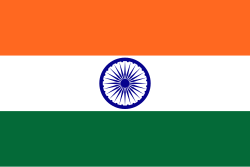
According to official statements from New Delhi, the strikes targeted infrastructure linked to terror groups operating from Pakistani territory. The Indian government emphasised that no Pakistani military installations were hit, describing the operation as a "measured and precise" action aimed solely at dismantling terrorist networks.
Pakistan's military confirmed that missile strikes hit areas in Muzaffarabad, Kotli in Pakistan-administered Kashmir, and Bahawalpur in Punjab province. Reports indicate that a mosque in Bahawalpur was damaged, resulting in the deaths of at least three civilians, including a child, and injuries to several others. Pakistan's Defence Minister condemned the strikes as an "act of war" and announced the downing of two Indian jets, along with retaliatory strikes on Indian positions.
The escalation follows the 22 April attack in Baisaran meadow near Pahalgam, where gunmen in army fatigues opened fire on a group of tourists, killing 26 and injuring 17. The Resistance Front , a proxy of the Pakistan-based Lashkar-e-Taiba, claimed responsibility for the assault. The National Investigation Agency has since taken over the investigation, identifying five attackers, including three Pakistani nationals, and releasing sketches of the suspects.
In the aftermath of the Pahalgam attack, India undertook several diplomatic and security measures against Pakistan. These included the cancellation of all Pakistani visas from 27 April, with medical visas extended by 48 hours. States were instructed to identify and deport Pakistani nationals, leading to the expulsion of 208 individuals from Hyderabad. Additionally, India suspended the Indus Waters Treaty, a significant water-sharing agreement, and declared Pakistani military advisors in New Delhi as persona non grata.
The international community has expressed deep concern over the escalating tensions between the two nuclear-armed neighbours. The United Nations has urged both countries to exercise restraint, while nations including the United States, United Kingdom, Russia, Saudi Arabia, and the United Arab Emirates have been briefed by Indian officials. Civilian panic persists in affected regions amid ongoing cross-border artillery exchanges, and Pakistan International Airlines has suspended flights in response to the volatile situation.
The Pahalgam attack has also led to internal unrest within India. Incidents of violence and threats against Muslims have been reported in at least four states, including Uttarakhand, Karnataka, Uttar Pradesh, and Madhya Pradesh. Authorities are working to maintain communal harmony and prevent further escalation of tensions.
